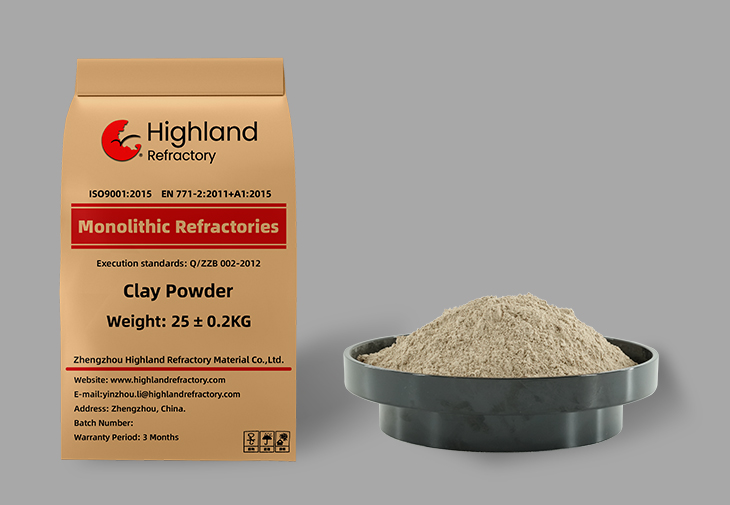
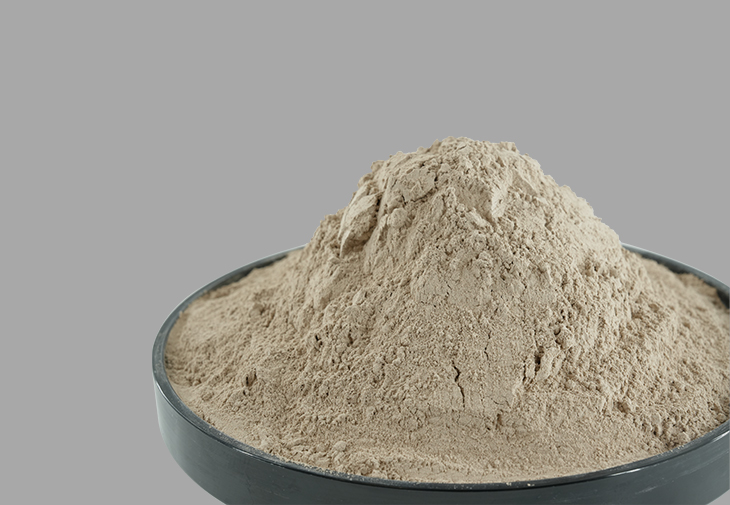


Clay powder refers to the calcined clay refractory raw material.
The appearance is white or nearly white, mixed with light yellow.
It is the main raw material used for producing clay fire lining products. Its main chemical components are Al2O3 and SiO2.
(1)High strength
(2) Low water absorption rate
(3) Good resistance to wear
(4)Good weathering resistance
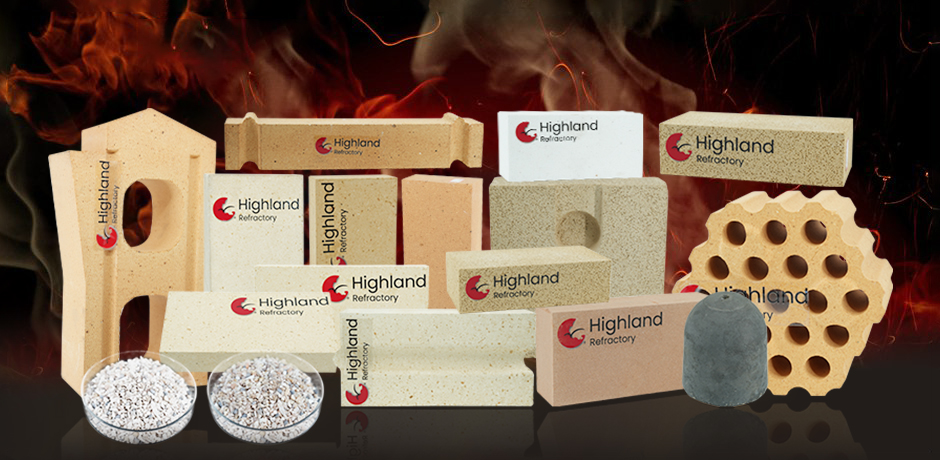
Clay powder is mainly used for refractory materials, such as amorphous refractory materials and refractory bricks. When the operating temperature of kilns or thermal equipment is low, it can also be used as refractory powder
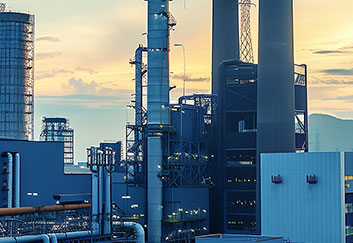
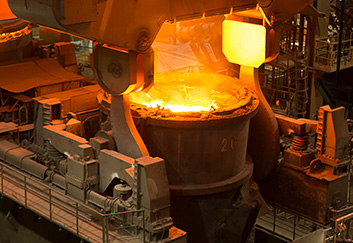
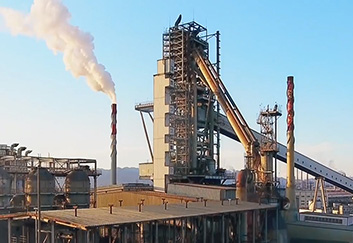
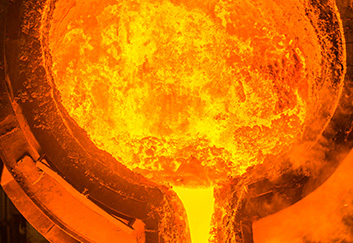
|
Type |
Content(%) |
Refractoriness CN |
Bulk Density(g/cm3) |
Water Absorption (%) |
Impurity (%) |
|
|
Al2O3 |
Fe2O3 |
|||||
|
YNS-45 |
45~50 |
≤1.0 |
178 |
≥2.55 |
2.5 |
≤2.0 |
|
YNS-44 |
44~50 |
≤1.3 |
176 |
≥2.50 |
2.5 |
≤2.5 |
|
YNS-43 |
43~50 |
≤1.5 |
176 |
≥2.45 |
3.0 |
≤3.0 |
|
YNS-42 |
42~50 |
≤2.0 |
174 |
≥2.40 |
3.5 |
≤3.5 |
|
YNS-40 |
40~50 |
≤2.5 |
172 |
≥2.35 |
4.0 |
≤3.5 |
|
YNS-36 |
36~50 |
≤3.5 |
168 |
≥2.30 |
4.0 |
≤4.0 |
Highland Refractory classifies Clay Powder based on mineral composition and application needs to serve diverse industries, including Kaolin Clay Powder (rich in kaolinite, low impurity, ideal for ceramics and paper coating), Bentonite Clay Powder (high plasticity and water absorption, suitable for drilling fluids and binder use), and Ball Clay Powder (fine particle size and strong bonding ability, perfect for pottery and refractory brick production); each type of Clay Powder is processed to adjust fineness and moisture content, ensuring it meets the specific requirements of different production processes, from high - precision ceramics to industrial binding scenarios.
Highland’s Clay Powder stands out in industrial and manufacturing applications with notable strengths: it has excellent plasticity, which allows it to be easily shaped into various forms when mixed with water, reducing molding difficulty for products like ceramics and refractory bricks; it also features strong bonding properties, acting as a reliable binder to hold other materials together during production, enhancing the structural stability of end products; additionally, it is cost - effective and widely available, making it a budget - friendly choice for large - scale production—these advantages make Clay Powder a versatile and practical raw material in many fields.
Clay Powder is extensively used across multiple sectors due to its versatile properties: in the ceramic industry, it serves as a core raw material for making ceramic bodies and glazes, leveraging its plasticity to ensure smooth shaping and firing; in the construction industry, it is added to mortar and cement mixes to improve workability and bonding strength; in the refractory industry, it acts as a binder in refractory brick production, helping to fuse other refractory materials; in the paper industry, high - purity Clay Powder is used for coating paper surfaces to enhance smoothness and printability—each application highlights Clay Powder’s ability to adapt to diverse production needs.
Clay Powder (Highland) excels in plasticity and bonding, with its mineral composition enabling easy shaping and strong adhesion, making it ideal for scenarios like ceramic molding and refractory binding where moldability and cost - efficiency are key; High Alumina Powder, by contrast, specializes in high - temperature resistance and mechanical strength, thanks to its high alumina content, which allows it to withstand ultra - high temperatures (up to 1700℃) and enhance the durability of high - temperature products like advanced refractories—each powder targets distinct needs, with Clay Powder leading in moldability and affordability, while High Alumina Powder dominates high - temperature performance.
Highland Refractory is a trusted producer of high - quality Clay Powder, backed by 30+ years of refractory and mineral processing expertise—we source high - grade clay ores, use advanced crushing, grinding, and purification technologies to control particle size (from 100 mesh to 2000 mesh) and remove impurities, and conduct strict quality tests (checking plasticity, moisture content, and mineral composition) for every batch, ensuring each Clay Powder meets industry standards; we hold ISO 9001/CE certifications, have an annual production capacity of 60,000 tons (covering various mineral powders), and serve 1500+ clients globally, making us a reliable partner for Clay Powder needs.
Choosing Highland Refractory for your Clay Powder requirements means accessing tailored solutions and comprehensive support: we offer customization (adjusting particle size and moisture content of Clay Powder to match your process, such as 325 - mesh for ceramics or 100 - mesh for refractories), fast delivery (3–7 days for standard grades in stock, 10–15 days for customized ones), and bulk discounts (5–10% off orders ≥ 10 tons); we also provide free samples, detailed quality reports, and 24/7 technical guidance—our commitment ensures your Clay Powder integrates seamlessly into production, boosting efficiency and product quality.

A: Certainly. We're happy to provide a few free samples of Clay Powder. You just need to cover the shipping cost to your address. Could you please share your shipping details?
A: For our standard - grade Clay Powder in stock, you can expect delivery within 3 - 7 days. If you've ordered a customized type with specific particle size or moisture content, it'll usually take 10 - 15 days as we'll need extra time for processing and quality checks. For large - scale bulk orders, we'll work with you to set a suitable delivery schedule.
A: We take great care in packaging Clay Powder. First, it's sealed in high - quality moisture - proof plastic bags to protect it from humidity. Then, these bags are placed inside sturdy cardboard or steel drums, depending on the quantity. The drums are clearly labeled with handling instructions like "Keep Dry" and "Handle with Care".
A: We accept T/T (Telegraphic Transfer) and PayPal for payments. Just like with our other products, we require full payment before dispatching the Clay Powder. We're constantly looking into adding more payment options to make it more convenient for you.
A: Absolutely. Every batch of Clay Powder we produce undergoes strict quality control. You'll receive a detailed quality inspection report that includes information about its particle size distribution, moisture content, and mineral composition. This way, you can be confident about the quality of the Clay Powder you're getting.
A: We're very sorry if you receive any damaged Clay Powder. Please contact our customer service right away and provide photos and details of the damage. We'll arrange to replace the damaged Clay Powder with a new, undamaged batch at no extra cost to you.
High alumina fine powder is a powder material with alumina (Al2O3) as the main component.
Refractory cement, also known as aluminate cement, is a fire-resistant hydraulic cementitious material.
High alumina fine powder is a powder material with alumina (Al2O3) as the main component.
Steel fiber wear-resistant castables are widely used in high temperature and wear-resistant environments in many industrial fields such as metallurgy, building materials, and chemicals.
White corundum castable is a high-quality high-temperature refractory material with high-purity alumina powder as the main raw material.
High aluminum castable refers to a refractory castable with Al2O3 content greater than 48%.
Lightweight insulation castable is a refractory with low density and excellent insulation properties.
Corundum mullite castable is a high-quality high-performance refractory material with high thermal conductivity, insulation, good chemical stability and resistance to reducing agents.
Silicon carbide castable is an amorphous refractory material with silicon carbide as the main component.
Chrome corundum castable is a high-performance amorphous refractory material composed of corundum and chromium. It has high melting point, high hardness, high stability and excellent slag resistance and wear resistance.
high alumina cement is a powder material with alumina (Al2O3) as the main component.
Plastic is an amorphous refractory material in the form of hard mud and has high plasticity.
Refractory spray coating is a kind of amorphous refractory material, which is applied to the lining of thermal equipment by spraying construction method.
Widely used in a variety of furnace front package, transfer package, ladle insulation layer...